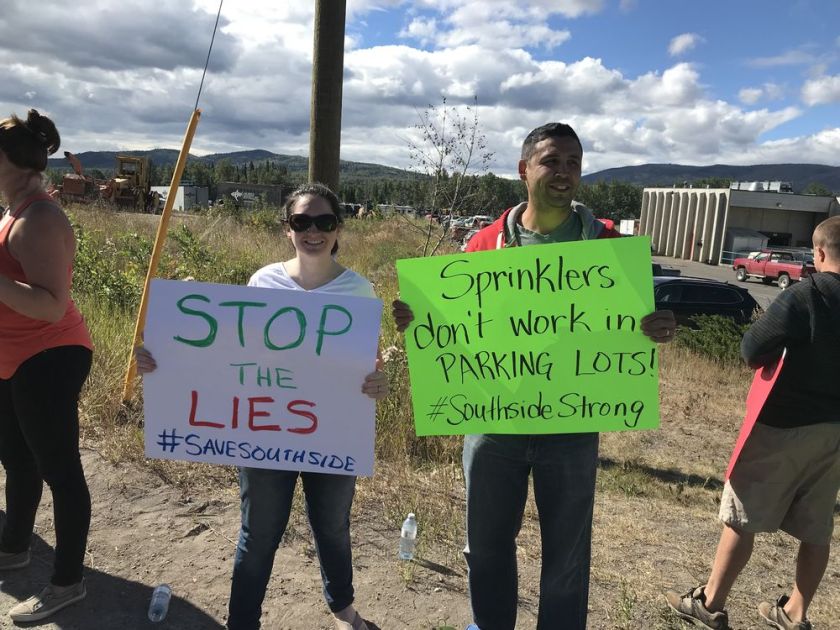B.C. Wildfire Service says gear isn't appropriate for fires near village
Protesters gathered in Burns Lake, B.C. Saturday after firefighters who arrived from Alberta were told their gear wasn't appropriate to fight fires burning south of the village.
The Alberta firefighters drove west to the B.C. town earlier this week, offering sprinklers, pumps and hoses to fight fires on the village's south side.
But after testing the gear, the B.C. Wildfire Service said the high-capacity water delivery system wouldn't be appropriate to fight the fires and won't be used.
Locals reacted angrily, saying that equipment could have been used to help fight fires threatening the area.
"It feels like our property and our land doesn't mean anything. There's resources here that haven't been deployed. It's a waste of time and money," said protest organizer Ginger Moyah.
"Everyone's really hurt."
The locals gathered by the trucks on Saturday morning to protest, but have moved their demonstration outside the local wildfire centre.
Councillor Charles Rensby said the group wants officials to reconsider their decision.
"What we're trying to do is put pressure on B.C. wildfire to re-look at some of the options ... to try and get a plan together to stop wildfires from destroying everyone's homes and livelihoods," he said.
'Not an appropriate tool'
Winds have complicated the battle against the complex of fires southwest of Burns Lake, which includes the Nadina, Verdun and Cheslatta Lake wildfires.
The Albertans' gear is a high-capacity water delivery system, meaning it can move large bodies of water around to reach fires.
A statement from the wildfire service said the gear needs "very large bodies" of water and flat terrain to work — neither of which was available.
"In areas of the fire where this tool would be most effective, the water sources were insufficient, the terrain was challenging and there was significant distance between structures," the service said in an emailed statement.
"The B.C. Wildfire Service is currently evaluating the use of alternate water delivery systems for utilization on the Babine Complex as well as for future use with wildfire suppression."
Moyah said she doesn't buy it.
"There's more than enough water sources over there [on the southside]," she said. "There's a million lakes over there."

